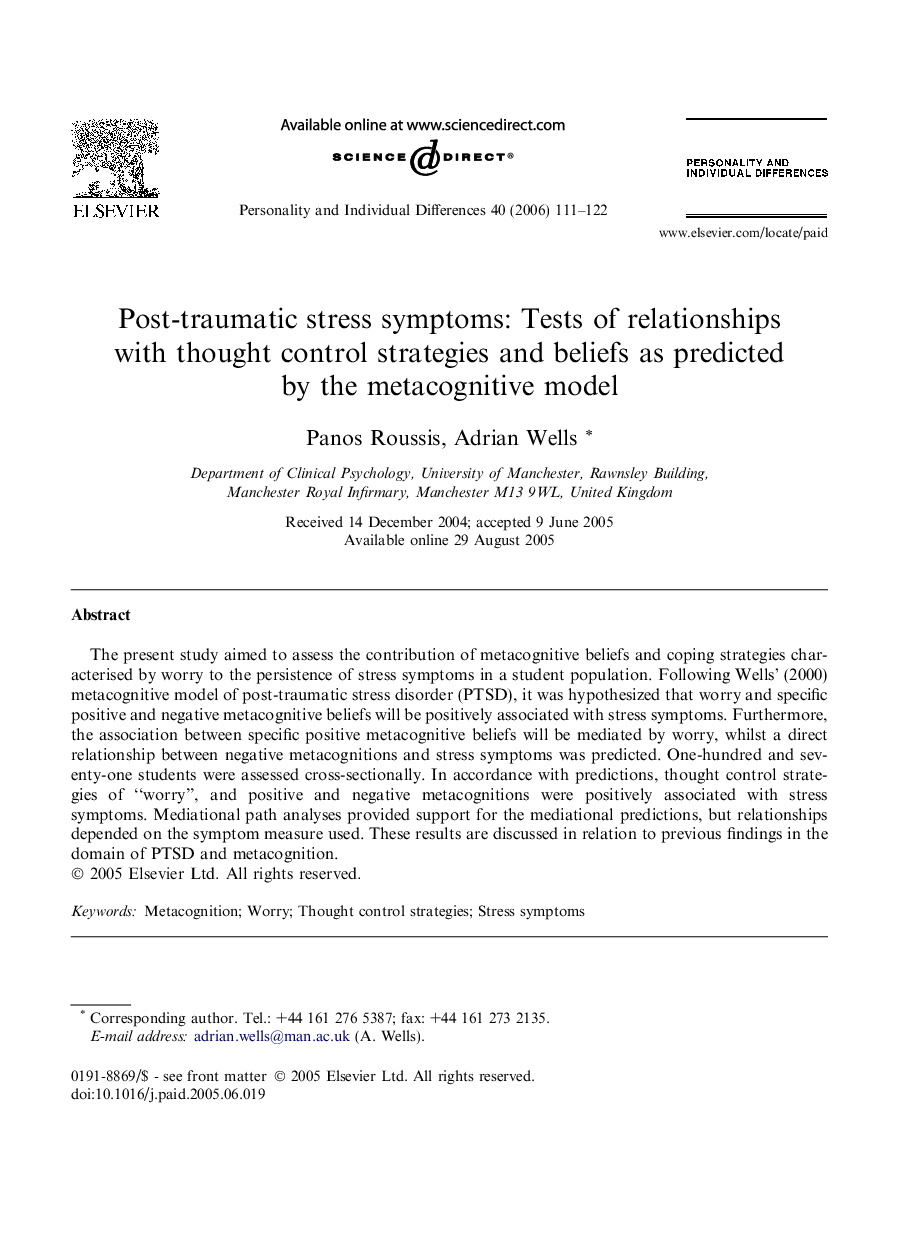| کد مقاله | کد نشریه | سال انتشار | مقاله انگلیسی | نسخه تمام متن |
|---|---|---|---|---|
| 893322 | 914126 | 2006 | 12 صفحه PDF | دانلود رایگان |

The present study aimed to assess the contribution of metacognitive beliefs and coping strategies characterised by worry to the persistence of stress symptoms in a student population. Following Wells’ (2000) metacognitive model of post-traumatic stress disorder (PTSD), it was hypothesized that worry and specific positive and negative metacognitive beliefs will be positively associated with stress symptoms. Furthermore, the association between specific positive metacognitive beliefs will be mediated by worry, whilst a direct relationship between negative metacognitions and stress symptoms was predicted. One-hundred and seventy-one students were assessed cross-sectionally. In accordance with predictions, thought control strategies of “worry”, and positive and negative metacognitions were positively associated with stress symptoms. Mediational path analyses provided support for the mediational predictions, but relationships depended on the symptom measure used. These results are discussed in relation to previous findings in the domain of PTSD and metacognition.
Journal: Personality and Individual Differences - Volume 40, Issue 1, January 2006, Pages 111–122